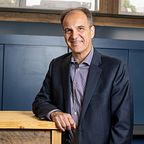Global Young Academy 5th International Conference for Young Scientists 2015
What Impact Can Citizen Science Have on Public Attitude Towards Science in Society?
2 min readMay 29, 2015
Discussion Group Leader: Laura Petes, National Oceanic and Atmospheric Administration (NOAA)
If you wish to return to the summary of themes discussed at the Interactive Session (10:30am — 12:00pm) please click here.
What is Citizen Science?
- Non-scientists doing science
- Science outside of frame of traditional science
- Way to engage citizens in collecting large data sets e.g., amateur astronomers, birders, etc.
- Traditional and indigenous knowledge — work with scientists to blend local knowledge and hard science
- Accessible science. Public, no barriers. Opportunity to attract people to science
- Popular science. Science for citizens. Make information available in simple ways that is clearly communicated.
- Influence of citizens on policy making — can inform decisions.
- Adaptable to change
- Helps to address mistrust of science e.g., with vaccines
- Form of engagement
- Trend towards more two-way relationships between science and society
- Much social science is based on citizen science
Challenges and Opportunities of Citizen Science
- Education on risk and uncertainty
- Limitations of using data collected by non-scientists
- “Language” barriers between scientists and citizens
- Have to ensure that results are validated
- Not always respect from the scientific community
- Is the media the new peer-review process?
- Peer reviewers or funding agencies may not see the data as credible
- Need to educate observers in scientific process
- Need to establish a code of practice
- Establishing training and best practices but not being burdensome or too time-consuming
- Ability to have relationships between scientists and citizens depends on scale of project
- Need to avoid exploitation
Future!
- Establish pathways for citizens to provide new ideas
- Who defines the project and articulates the need? [shouldn’t all come from the scientists]
- Research should focus on community needs. Need to refresh idea of “impact factor”
- Need for incentives for scientists — not currently in traditional academic structures
- Use of media and social media
- Engage not just “citizens” but also journalists, politicians, etc
- “Politicians-in-Residence”
